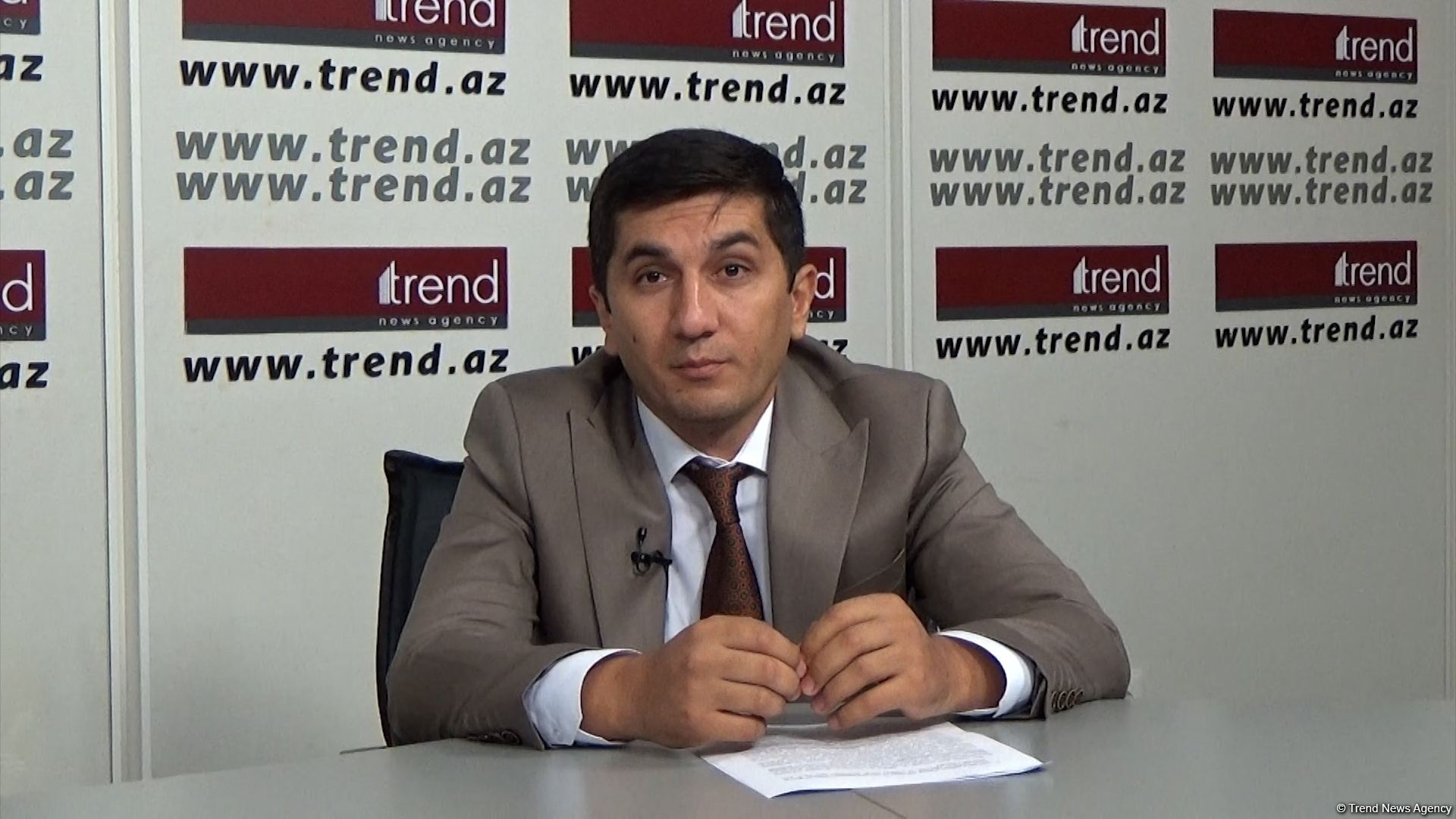BAKU, Azerbaijan, October 12. The Law on Payment Services and Payment Systems will establish a framework for the licensing and regulation of electronic money and payment firms, Chief Specialist of the Payment Systems and Settlements Department of the Central Bank of Azerbaijan (CBA) Khayaleddin Taghiyev told Trend in an exclusive interview.
Taghiyev claims that it will establish a legal foundation for banks, local branches of foreign banks, national postal operators, as well as new payment service providers such payment institutions and e-money institutions, to offer payment services.
"E-money's release and use will be subject to specific legal restrictions and other measures. Financial inclusion will increase and play a vital role in bringing different retail payments into cashless circulation with the creation of a legal framework for the usage of e-money and mobile wallets. Payment services will be used in a way that is more effective and secure, and statutory protection for users of those services will be improved," he said.
Taghiyev also mentioned that there will be defined information rules for the provision of payment services, execution and refusal to execute payment orders, the procedure for dealing with unauthorized or improperly executed payment transactions, as well as the rights and obligations of payment service providers and users on payment instruments and the extent of their responsibility.
The open banking tenets will serve as the foundation for third-party providers' operations, according to Taghiev.
"There will be regulation of cutting-edge payment service providers like Fintex, which offers account information and payment transaction intermediary services. To safeguard electronic payments and client payment information, security standards such improved customer authentication will be developed. As a result, the danger of fraud in electronic banking and online payments would decrease, and user data privacy will be protected," he emphasized.
He claims that establishing a network of payment agents who perform payment services for banks, payment organizations, and e-money institutions will have a legal foundation.
"On the basis of a contract, agents in the field of payment services are either businesses with legal status or independent contractors. This will enable agents to offer payment services in isolated rural locations that are not serviced by bank offices. For the development of payment system operators, a legal framework for licensing, regulating, and controlling their operations will be developed. At the same time, a more competitive framework will be used to create the nation's payment system market. There will be requirements for establishing payment system operators and settlement agents," he added.
Taghiyev asserts that the passage of the law "On Payment Services and Payment Systems" will have a significant impact on the growth of the digital payments ecosystem in Azerbaijan, but this area is unregulated and the law as a whole makes no mention of digital currencies, including the Central Bank's digital currency.
"It is worth noting that most central banks and think tanks in the world are currently conducting basic research to assess the feasibility of implementing a Central Bank Digital Currency (CBDC). Thus, in order to define a conceptual approach in this direction in our country, the CBA took advantage of relevant technical assistance opportunities," he said.
Additionally mentioned by Taghiyev were the goals of the technical assistance that led to the establishment of the CBDC, the CBDC's design elements, the legal and regulatory environment, the policy implications (money policy, financial stability, and financial inclusion), and the infrastructure of existing digital payment systems. The Central Bank closely monitors research and pilot projects carried out in other nations as a continuation of the work done in this area, and their experiences are evaluated.
“According to the law "On Payment Services and Payment Systems", foreign payment service providers and payment system operators will be able to work in Azerbaijan in two forms,” said Taghiyev.
"First of all, they can carry out their activities in Azerbaijan by opening a local branch and obtaining a license. Secondly, by concluding an agreement with payment service providers operating in Azerbaijan and opening an account, these organizations will be able to provide payment services in Azerbaijan," he said.
Taghiyev noted that a total of 38.4 million transactions worth 1.1 billion manat ($647.1 million) were made through Apple Pay, and 20.5 million transactions worth 420 million manat ($247.1 million) were made through Google Pay from January through August 2023.
According to Taghiyev, interest in payments made using mobile devices in Azerbaijan has increased significantly in a short period of time.
"In recent years, the high growth rates of non-cash payments in the country, especially contactless transactions, indicate the growing interest of the country's population in non-cash payments and innovative payment solutions. Therefore, the number of payment cards in circulation increased by 20.2 percent (to 15.7 million) compared to the same period last year, and the volume of non-cash payments doubled as of September 1, 2023 (to 28.8 billion manat, or $16.9 billion),” said Taghiyev.
“Compared to the corresponding period last year, the share of non-cash circulation in internal card payments increased by 12.4 percentage points (to 53.7 percent). The volume of payments made through POS terminals increased by 75.8 percent year-on-year and reached 6.1 billion manat ($3.6 billion)," he said.
Taghiyev also said that compared to the same period last year, the number of contactless payment cards increased by 26.8 percent (11.7 million), the number of domestic contactless payments exceeded the indicator of the same period in 2022 by 2.3 times, and the volume increased by 93.2 percent.
The Law "On Payment Services and Payment Systems" was adopted by Milli Majlis (Parliament) on July 14 and signed by President of Azerbaijan Ilham Aliyev on August 9.







